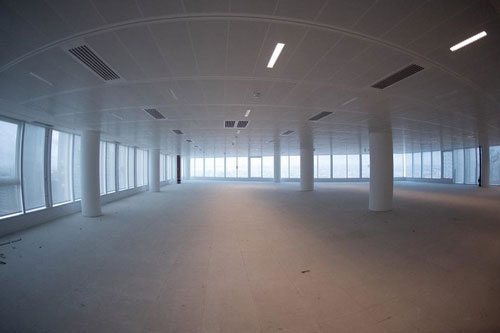Paris
Covid-19 has emptied office buildings and business districts, and with working from home expected to be the norm after the pandemic, some want to convert them to residential use to help solve inner city housing crises.
France has already begun to experiment with such conversions and “the significant rise in remote working encourages scaling up” such projects, French Housing Minister Emmanuelle Wargon said recently.
She wants to accelerate the transformations to respond to both the need for housing and to fight against urban sprawl.
A recent study concentrating on the Paris region, home to nearly a fifth of France’s population, found that if around 40 percent of firms adopted two days of remote working per week following the pandemic, they could reduce the office space they occupy by almost 30 percent, or 3.3 million square metres, over the coming decade.—AFP










